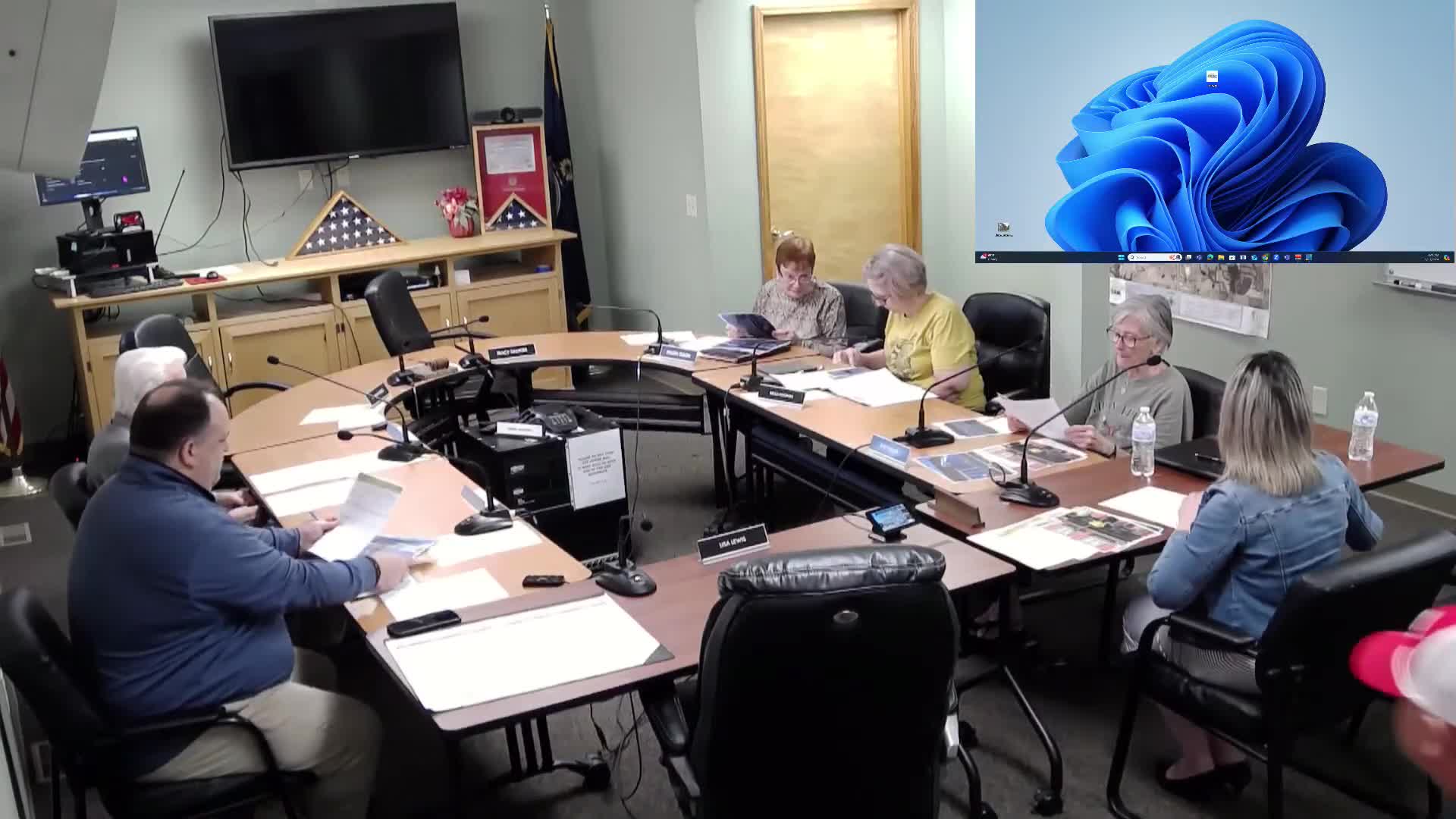Fort Scott review panel approves downtown awning, debates paint and enforcement rules
Get AI-powered insights, summaries, and transcripts
Subscribe
Summary
A Fort Scott City review panel approved an awning for a downtown building March 30 and then discussed how to enforce guidelines on exterior paint, permits and penalties, including consulting a state reviewer and asking staff to take recommendations to the city commission.
A local Fort Scott City review panel approved an awning for a downtown building and then spent the meeting debating how the city should enforce rules for exterior work, paint colors and permits in the historic downtown area at a March 30, 2023 meeting.
Panel members approved the awning application after a short presentation and an applicant’s acknowledgement that the omission was an oversight. The applicant told the panel, "This one here was just, an oversight on my part initially. I I forgot the process." A motion to approve was made, seconded and carried by voice vote.
The discussion that followed focused on enforcement and clarity of rules for paint, awnings, windows and other exterior alterations. Panel members and attendees raised three recurring issues: whether paint changes require prior review, what penalties the city should use when property owners do not follow approved plans, and whether guidance from the state should be requested before drafting local policy.
Panel members said painting in the historic downtown is supposed to be subject to review but acknowledged the process can be unclear to property owners because paint does not currently require a building permit. One member noted that paint "doesn't require a permit" in the historic downtown and that owners sometimes make changes "out of ignorance of the process." Panel members repeatedly referenced state guidance and said they hoped to consult Katrina Ringler in Topeka to clarify what the state expects.
City staff and others described the enforcement steps currently used for city code violations as a graduated process that typically begins with a notice or letter and can escalate to fines, court costs and, in some cases, removal or towing when the city must take action. As one staff speaker put it while discussing typical code enforcement practice, "You get a letter, then go step by step." During the discussion a possible fine amount was mentioned as approximately "$100 maybe plus court costs" and another speaker suggested fines in the neighborhood of "$175," but panel members treated those figures as examples from past code enforcement conversations rather than as fixed penalties for downtown design issues.
Panel members and some downtown property owners urged clearer paperwork and a simple record for applicants. One member proposed giving every applicant a short document showing what the panel approved and whether a permit is required, so property owners retain a written record of the decision. Another member said the panel should prepare a recommendation for the city commission to create an enforceable policy; the panel agreed a recommendation from the panel and follow-up by the codes department would be the next step.
Speakers also discussed sequencing: if the review panel approves a change and the city commission later approves it as well, enforcement would fall to the codes department if the owner did not follow the approved plan. Panel members emphasized they wanted a consistent process that protected investment in downtown buildings while giving property owners a reasonable chance to comply.
Next steps recorded in the discussion included arranging a meeting (via Microsoft Teams if needed) with Katrina Ringler from Topeka to review state guidelines, drafting a recommendation to present to the city commission, and creating a simple handout for applicants that documents panel recommendations and the permit status. The panel approved the awning application and concluded the meeting after agreeing to forward the enforcement recommendations to staff and the commission for consideration.
